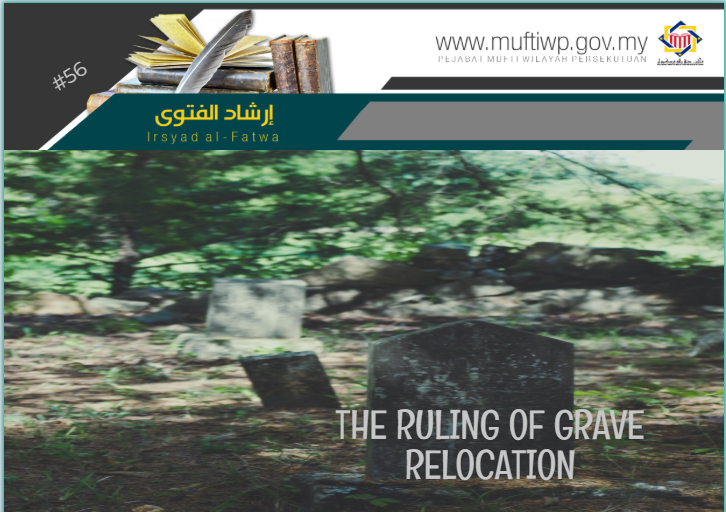Question:
What is the ruling of relocating graves according to Islam?
Answer:
Alhamdulillah, praise and thanks to Allah for the many countless blessings He has blessed us all with. Blessings and salutations to the Prophet Muhammad PBUH, his wives, his family, companions and all those that follow his teachings to the day of judgement.
The original ruling of relocating graves is impermissible without any reason or necessity. This has been decided by the majority of the scholars. However, if it is in exigent situations, then it is permissible. Here, we include the opinions of scholars regarding this issue:
- Permissible if it would defile the honour and dignity of the deceased if the deceased is not exhumed. See Mughni al-Muhtaj (1/496)
- In exigent situations when it is related to matters such as the deceased was not bathed or tayammum, or not shrouded or if the deceased was buried not facing the qibla. It also includes to matters related to the relocation of the deceased because the deceased is buried in non-Muslim graveyard, or may be subjected to harm (submerged in water, soil corrosion and others) or the fear that the deceased will be defiled by the disbelievers or the people of bid’ah. See Mughni al-Muhtaj (1/496), Busyra al-Karim (2/39) and Sabil al-Muhtadin (85).
- According to syarak, it is not sinful to relocate graves if there is a fear of defilement of the deceased, it is even obligatory to relocate the deceased to protect the honour and dignity of the deceased. This is in accordance with the actions of the companions of the Prophet PBUH, where they relocate the graves of the martyrs from getting soaked.
- Furthermore, there are graves of the companions that is relocated to another place:
When commenting on the opinion of Abu Abdullah al-Zubairi, where he states that it is permissible to relocate a grave if the grave is in the path of a watercourse, an irrigation or if the soil is damp, Imam Nawawi Rahimahullah said:
قول الزُبيرِي أَصحُ فقدْ ثبتَ فِي صحيحِ البخارِي عَن جابرِ بن عبدِ الله رَضِى الله عنهما أنهُ دَفنَ أباهُ يومَ أحدٍ معَ رجلٍ آخرٍ في قبرٍ قالَ ثُمَّ لَمْ تَطِبْ نفسِي إن أتركَهُ مع آخرٍ فاستخرجتُهُ بعدَ ستةٍ أشهرٍ فَإِذَا هوَ كَيومٍ وضعتُهُ هُيئةٍ غيرَ اذنِهِ وفِى روايةٍ للبخارِي أيضًا اخرجتُهُ فجعلتُهُ فيِ قبرٍ علي حدةٍ وذكرَ ابنٌ قتيبةَ فِي المعارفِ وغيرِهِ ان طلحةَ بن عبدِ اللهِ أحد العشرةَ رضي الله عنهُمْ دُفنَ فرأتْهٌ بنتُهُ عائشةٌ بعدَ دفنِهِ بثلاثينَ سنةً فِي المنامِ فشكَا إليهَا النَزَّ فأمرتْ بِهِ فاستخرجَ طريًّا فدُفنَ فَي دارِهِ بالبصرةِ
“The opinion of al-Zubairi’s is the strongest opinion, in this matter, there is evidence from a hadith narrated by Bukhari from Jabir RA, where his father was buried during the war of Uhud with two other men in one grave. I felt uncomfortable to let him be buried with other people, then I exhumed him after six months. I was surprised to see that his condition is the same as when he was buried except for his ears, (in another narration also by Imam al-Bukhari), I exhumed him and relocate him into his own grave. In the book al-Ma’arif, Ibnu Qutaibah and others said, Abu Talhah bin Qutaibah R.Anhuma (one of the ten companions who are promised paradise) has been buried for thirty years. Then one day, his daughter named Aisyah had a dream where she saw Talhah complained that his grave is filled with stagnant water. Afterwards, Aisyah exhumed her father’s body while the body is still in good condition and then buried in his hometown in Basrah.” See al-Majmu’ by Imam al-Nawawi (5/273).
Wallahua’lam.


